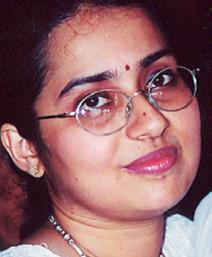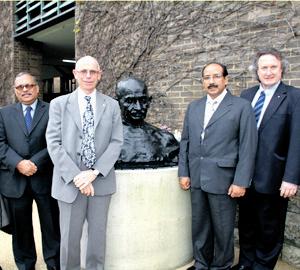
2 minute read
ONGC-UNSW partnership to tap unconventional oil resources
from 2012-09 Sydney (2)
by Indian Link
Joint collaboration seeks solution to depleting oil reserves tapping other unconventional resources
BY USHA RAMANUJAM ARVIND

The UNSW School of Petroleum Engineering (SCOPE) has forged a crucial research agreement with the Indian government run Oil and Natural Gas Corporation Ltd. (ONGC) to evaluate the production potential of an “unconventional oil resource”.

The partnership will explore the “feasibility of recovering hydrocarbon fuel from hardto-access offshore geological structures known as basement reservoirs”.
ONGC has been particularly interested in its Heera Fractured Basin at Mumbai Offshore located on the western continental shelf of India.
Working closely with its counterparts in US, UK, Germany, France and Japan, SCOPE is a recognised leader in the area of geothermal energy technology.
The latest memorandum of understanding, valued at $2.05 million over the next two-anda-half years, is the fourth major project between UNSW and ONGC. It builds further into the existing five-year partnership, entered first in 2002 and which has since been extended twice.
“This is an important partnership for UNSW that has grown with time,” stated Professor Val Pinczewski, Head of SCOPE.
“ONGC certainly have a need for the sort of high level technological developments we have been making, and we think they are an excellent partner to work with,” he noted. “At UNSW we have ongoing programs in geothermal energy led by Professor Sheik Rahman, which basically look at characterising fracture systems in rock structures and forming strategies to develop these fractured reservoirs. We also have programs in fracturing hard rocks to enhance production. Together, these research efforts will provide the framework for this project”.
“The actual technology you need to develop these reservoirs is not much different from the technology used to develop shale gas,” he further explained. “This is already very big in the US, and has the potential to become very big in Australia. So for us there are some really good synergies between what we can do here in the local context and what we’re doing internationally with partners like ONGC.”
According to Professor Pinczewski, UNSW’s experienced engineers and geo-scientists will be developing a range of mathematical models to predict fracture characteristics of this particular basement rock type, simulate fluid flow through its interconnected fracture system and estimate the hydrocarbon potential.
Later on, they will be conducting experiments with rock samples provided by ONGC and applying their models in the field to test how much oil is recoverable.
“For the last 10 years we have been cooperating on different areas of hydrocarbon reservoir development. During this period two projects have been completed, one is in progress and the fourth - the fractured basement study is about to start”, Professor Rahman told Indian Link “SCOPE has developed specific tools and methodology for characterisation and development of fractured basement and this partnership gives us an opportunity to apply the knowhow that we have developed for exploitation of geothermal resources in Australia,” he added.
Professor Rahman has made a pioneering contribution in the development of Australian geothermal resources, particularly drilling methods and equipment for highly stressed and abrasive environments. He has advanced the technology of hydraulic fracturing to stimulate and develop naturally fractured reservoirs. This technology has already been successfully applied in New South Wales, Queensland, South Australia and Victoria.
Additionally, the work will feed into the Australian Energy









